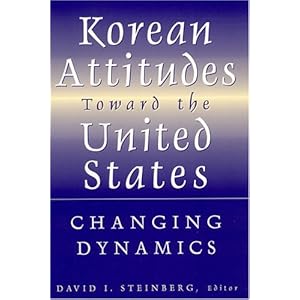Hot on the heels of their animated David Harvey talk on capitalism, the RSA has animated a recent talk by Slavoj Zizek. They do quite a job of having some fun with controversial topics, this one being Zizek's critique of "the logic of charity."
Zizek, as one has come to expect, takes on the common sense (in the Gramscian sense) view of charity as obviously helpful by arguing that it perpetuates the system of inequality that it claims to transform. This 'simple' issue of charity that he discusses, in fact, blurs the distinction between two different activities. First, he's right to criticize the hypocrisy of 'charitable' capitalists who give to charity with one hand and perpetuate inequality with the other. As he says, drawing on Oscar Wilde, you can't solve the injustices of private property with private property.
However, he confounds this argument with another that isn't about charity, it's about conscientious consumerism. The idea is that the extent of activism of Western consumers is to purchase commodities that seem to make the world a better place. I don't have a problem with the critique that conscientious consumerism is not enough to change the world, and that it blocks a more radical, anti-capitalist response (this latter response requires not just a concept of the event, but also some degree of organization and class consciousness or, if you prefer, solidarity-consciousness...but we'll have to talk about this later).
My problem is that Zizek calls the egoism of conscientious consumerism a kind of charity. He's conflating marketing tactics, consumerism, and ideology with the reasons why capitalists as a class have had to switch to slightly less exploitative forms of capital accumulation. Let's follow his example of Starbucks and fair trade coffee for the sake of simplicity. Even the general framework of the movie Black Gold shows (if I remember right...my argument doesn't rise and fall on the movie itself) that it's neither capitalist nor consumerist philanthropy that generates what we might call 'slightly more equitable commodities,' it's some degree of organized social struggle and political pressure. By subsuming these changes under the "logic of charity," with only Western dramatis personae, Zizek misrepresents the subjectivity and collective action of the activists and workers who fought to implement fair trade practices through social struggle as a kind of passive acceptance of better conditions.
I don't want to fetishize fair trade products as the solution to exploitation, because they aren't; Starbucks uses its fair trading as a kind of battering ram to hammer on its Western competitors (namely local cafes). Might I also add that they offer health insurance as part of their benefits package (I know because I worked there for several years)-- again, not out of the kindness of their hearts but to stave off attempts to unionize.
In any case, we know from Capital, we must leave the "noisy sphere" of the market, "where everything takes place on the surface and in full view of everyone," and follow the owners of money and of labor-power "into the hidden abode of production." There we will find the relationship between uneven geographical development, exploitation, and, most importantly, social struggle. What I gather from Zizek, especially because he's pushing this critique of "cultural capitalism" rather than a critique of neoliberalism, is that he's not willing to make that dialectical leap.
(Hat tip to Santi for bringing the RSA video to my attention).
My problem is that Zizek calls the egoism of conscientious consumerism a kind of charity. He's conflating marketing tactics, consumerism, and ideology with the reasons why capitalists as a class have had to switch to slightly less exploitative forms of capital accumulation. Let's follow his example of Starbucks and fair trade coffee for the sake of simplicity. Even the general framework of the movie Black Gold shows (if I remember right...my argument doesn't rise and fall on the movie itself) that it's neither capitalist nor consumerist philanthropy that generates what we might call 'slightly more equitable commodities,' it's some degree of organized social struggle and political pressure. By subsuming these changes under the "logic of charity," with only Western dramatis personae, Zizek misrepresents the subjectivity and collective action of the activists and workers who fought to implement fair trade practices through social struggle as a kind of passive acceptance of better conditions.
I don't want to fetishize fair trade products as the solution to exploitation, because they aren't; Starbucks uses its fair trading as a kind of battering ram to hammer on its Western competitors (namely local cafes). Might I also add that they offer health insurance as part of their benefits package (I know because I worked there for several years)-- again, not out of the kindness of their hearts but to stave off attempts to unionize.
In any case, we know from Capital, we must leave the "noisy sphere" of the market, "where everything takes place on the surface and in full view of everyone," and follow the owners of money and of labor-power "into the hidden abode of production." There we will find the relationship between uneven geographical development, exploitation, and, most importantly, social struggle. What I gather from Zizek, especially because he's pushing this critique of "cultural capitalism" rather than a critique of neoliberalism, is that he's not willing to make that dialectical leap.
(Hat tip to Santi for bringing the RSA video to my attention).









 (Vintage, 1993)
(Vintage, 1993)





